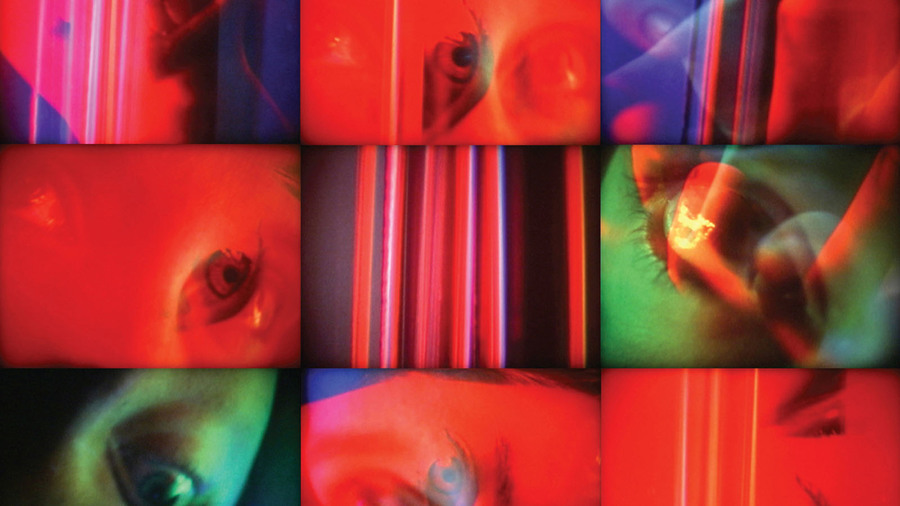
“Paul Clipson, the San Francisco-based experimental filmmaker once described as a ‘poet of cinema,’ died unexpectedly Saturday at the age of fifty-three,” reports Kevin L. Jones for KQED. “Clipson made dozens of short films and collaborated frequently with experimental musicians like Grouper, Maggi Payne, and Black Spirituals. His psychedelic, non-narrative work brought him international acclaim, with his films appearing at several festivals, including the New York Film Festival, Edinburgh Film Festival, and the Rotterdam International Film Festival.”
“Paul’s camera was an extension of his eyes and his mind,” writes Lawrence English at Tiny Mix Tapes. “Often exploring layering and double exposure, created exclusively through in-camera techniques, he’d meld one layer that seemed to track his retina in the moment with a second layer that appeared to reflect directly his impressionistic memory of those images. The actual and the impressionistic co-existed beautifully in Paul’s visual dialogues. The first few minutes of Paul’s film Love After Love, featuring music by Jefre Cantu-Ledesma, typifies his approach. Paul’s films always created ruptures in time, space, and perception. They asked us to forgo our everyday understanding in favor of his individualized comprehensions of time, subject, light, and the world more broadly.”
“Born in Scotland, Clipson grew up in Ann Arbor, Michigan and moved to San Francisco in the 1990s, working as a film projectionist at San Francisco’s Museum of Modern Art for the last two decades,” writes John Twells for FACT. “When I met Clipson in 2007, I had already stumbled across his work. A couple of years earlier he’d released Two Suns, a DVD collaboration with Jefre Cantu-Ledesma that twinned his experimental Super-8 films with Cantu-Ledesma’s dense, hypnotic drones. It was hard material to forget—there was something about Clipson’s work that felt explorative but deeply familiar; his use of color and light was emotional and personal without being cloying or sentimental.”
“I am crushed by the news,” writes Max Goldberg, who then offers “in grief and memory” a piece he wrote in 2010:
The first time I met Paul Clipson, we quickly discovered that we shared an intense regard for Nicholas Ray’s On Dangerous Ground (1952). I had just seen material that would become Clipson’s short film Union at a San Francisco Cinematheque screening a few days prior and found that its psychically charged shift from rural to urban spaces reminded me of the Ray movie (specifically, a single dissolve as Robert Ryan’s character drives back into the city). Union belongs to a different species of cinema, of course. It’s shot on Super 8 and 16 mm, wordless, with a narrative situation (a girl running) refracted as pure kinesis. As became apparent talking with Clipson, however, his deep knowledge of film history is attuned to texture rather than taxonomy. The second time I watched Union, I realized that On Dangerous Ground was just a convenient name for the deeper, more elusive sense of recognition it stirred in me.
“I’m drawn to the physical beauty of celluloid, to its grain, texture, tactility, its colors and tones,” Clipson told Otie Wheeler in an interview that ran in the Notebook last September. “I find film to be the most challenging and rewarding visual form to work in. Not only celluloid but the mechanisms and optics of film cameras and projectors as well. . . . With the mechanics of the camera, whether the trigger of a Super 8 mm Nikon R10 or the button of a 16 mm Bolex, there’s an instantaneous elation and sense of loss every moment one’s filming that’s unique.”
Clipson was a frequent contributor to the Notebook, often offering stimulating commentary on the soundtrack mixes he’d put together.
“I’ll always remember him as soft-spoken and kind, with a gentle and generous nature,” writes Geeta Dayal, posting her 2015 interview.
Just weeks ago, December 13, it was Paul Clipson Day at DC’s.
The Paul Clipson Family Memorial Fund is calling for support “to help his family with rent in San Francisco, funeral and memorial costs.”
The images at the top are from Paul Clipson’s seven-minute Super 8 film Other States (2013). For news and items of interest throughout the day, every day, follow @CriterionDaily.
from The Criterion Current http://ift.tt/2GXteu0
Nessun commento:
Posta un commento